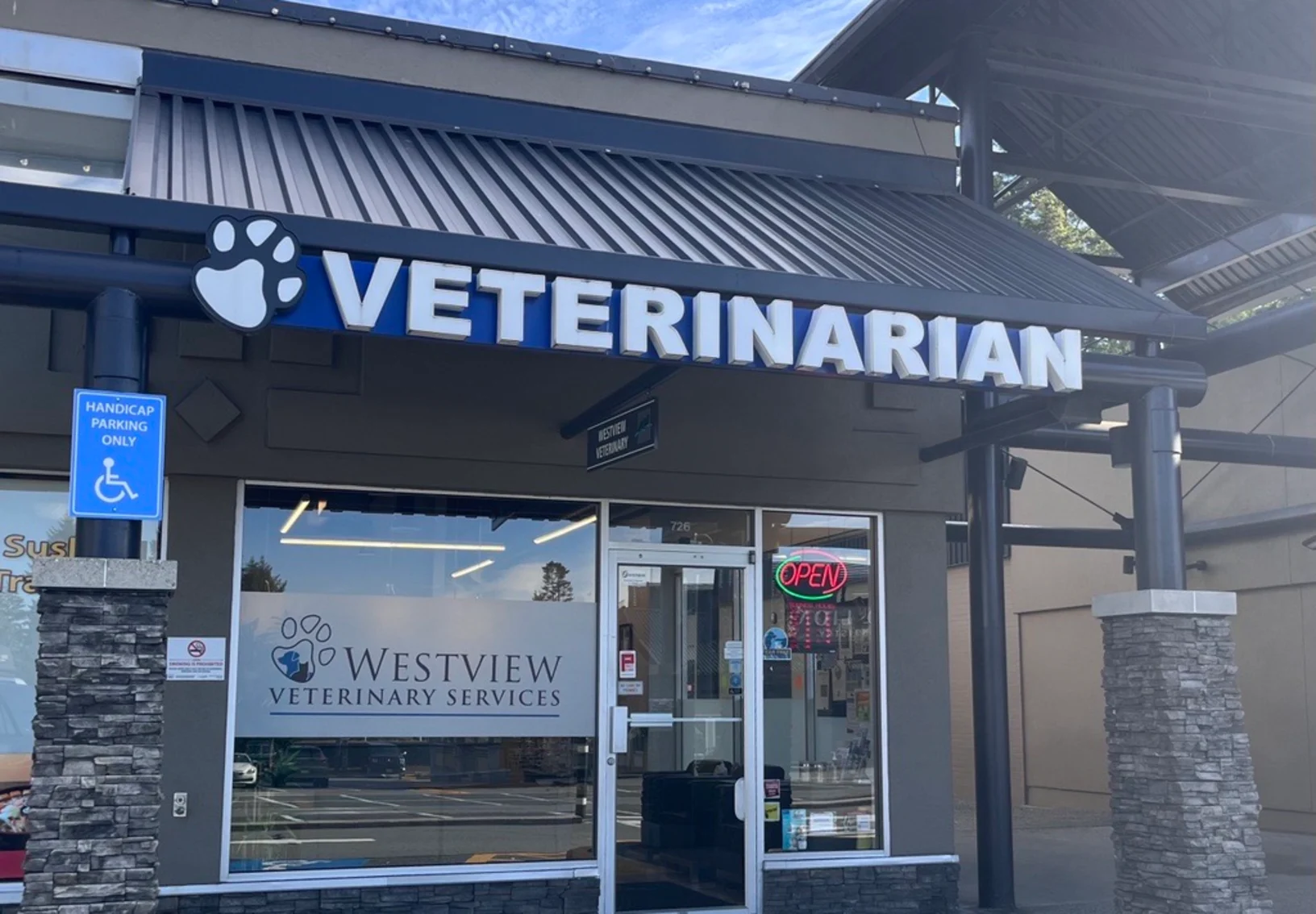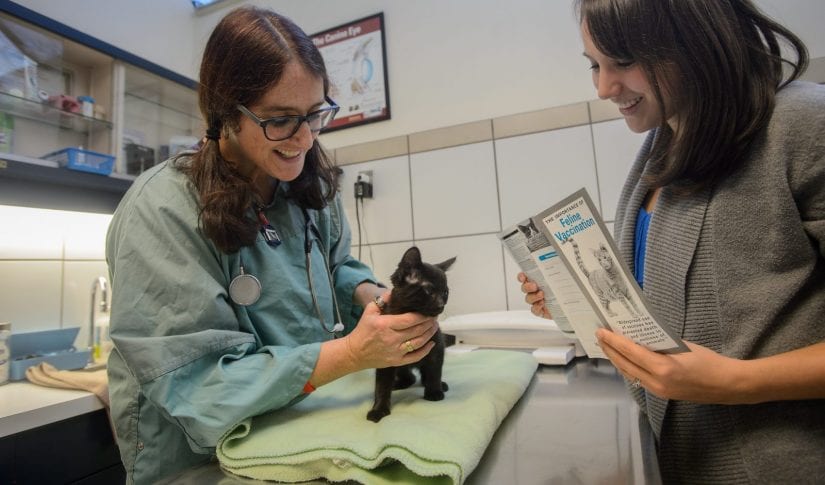When your pet needs a referral to a Veterinary specialist
Wiki Article
Exactly How a Veterinary Specialty Hospital Can Treat Your Pet's Ailments With Advanced Techniques
Veterinary specialty hospitals play a crucial duty in addressing intricate health and wellness concerns in pets. They use innovative methods and innovations that boost medical diagnosis and therapy. With access to specialized solutions, animal owners can discover tailored solutions for their pets' ailments. This increases vital questions regarding the specific approaches employed and the advantages they supply. Recognizing these components can especially influence a pet dog's healing journey.Understanding the Role of Veterinary Specialty Hospitals
Key treatment vets give vital solutions for pet health and wellness, vet specialty hospitals play a vital role in addressing complex clinical conditions that need sophisticated diagnostics and treatment. These facilities are geared up with specialized innovation and seasoned professionals who concentrate on specific areas of vet medicine, such as cardiology, neurology, and oncology.Veterinary specialty hospitals help with a joint technique, often working in combination with a family pet's key veterinarian to create complete treatment strategies. They supply accessibility to sophisticated imaging methods, such as MRI and CT checks, which are not generally offered in conventional centers. Additionally, these hospitals provide critical care unit for seriously ill pets, guaranteeing day-and-night surveillance and assistance.
Specialized Providers Supplied by Veterinary Specialists
Veterinary specialists supply vital solutions that improve pet healthcare, specifically through advanced analysis imaging methods. These devices allow accurate analyses of complicated clinical conditions, leading to more reliable targeted treatment strategies. By incorporating these specialized services, veterinary hospitals can significantly improve person outcomes and total wellness.Advanced Diagnostic Imaging
Advanced analysis imaging plays an important duty in modern-day veterinary medication, enabling professionals to get detailed insights into an animal's health and wellness. Strategies such as X-rays, ultrasound, calculated tomography (CT), and magnetic resonance imaging (MRI) allow veterinarians to envision interior structures without intrusive treatments - Learn More. These advanced imaging techniques aid in detecting a selection of problems, from tumors and fractures to body organ problems. By supplying clear photos, they enhance the accuracy of evaluations, which is vital for efficient therapy preparation. Furthermore, specialized veterinary radiologists analyze these pictures, guaranteeing that subtle concerns are not ignored. Eventually, progressed diagnostic imaging is important in supplying substantial care, as it permits early discovery and treatment in a pet's clinical issues
Targeted Therapy Plans
Targeted therapy plans are essential for resolving the certain health and wellness needs of pets, ensuring that each animal gets individualized treatment tailored to its unique problem. Veterinary professionals develop these plans based upon comprehensive evaluations, consisting of innovative analysis imaging and lab tests. By concentrating on the individual pet's medical diagnosis, age, breed, and way of living, professionals can recommend efficient therapies, varying from drug adjustments to surgical interventions. These strategies also incorporate follow-up care and checking to track the pet dog's progress and make necessary adjustments. This approach advertises ideal outcomes and enhances the total top quality of life for pets facing complex wellness difficulties. Inevitably, targeted therapy strategies represent a commitment to providing the highest possible standard of vet care.Advanced Diagnostic Techniques for Accurate Diagnoses
As animals encounter significantly intricate health obstacles, the combination of innovative analysis techniques has become necessary for achieving precise diagnoses. Veterinary specialty hospitals make use of advanced imaging modern technologies, such as MRI and CT checks, to envision interior structures with remarkable clarity. These techniques permit vets to identify problems that may not show up through typical techniques.Along with imaging, progressed lab examinations, including genetic and biomarker evaluations, give crucial understandings into hidden problems. These tests make it possible for veterinarians to identify diseases at earlier phases, assisting in prompt intervention. In addition, the use of endoscopy enables for straight visualization of internal organs, helping in the medical diagnosis of intestinal and respiratory system concerns.
Ingenious Therapy Choices for Complex Conditions
Ingenious therapy options for complicated conditions in animals have emerged as an important emphasis within vet specialty hospitals. Making use of cutting-edge diagnostic tools, these facilities boost their capability to determine issues properly and tailor ideal interventions. Veterinary. Additionally, the implementation of minimally invasive treatments and progressed recovery strategies uses pets a far better opportunity at healing with decreased painAdvanced Diagnostic Devices
While the landscape of veterinary medication continues to develop, cutting-edge diagnostic tools have actually emerged as important possessions for resolving intricate conditions in pets. These innovative modern technologies, including digital imaging, ultrasound, and molecular diagnostics, permit vets to get specific information about a family pet's health and wellness status promptly. High-resolution imaging techniques can disclose intricate details of inner frameworks, enabling precise assessments of diseases or injuries. Additionally, hereditary testing gives insights right into genetic conditions, directing customized therapy strategies. By leveraging these cutting-edge diagnostic devices, vet specialty hospitals can boost their capacity to determine ailments that might have formerly gone undetected. Ultimately, these innovations add to improved end results and enrich the total high quality of care offered to beloved pets.Minimally Intrusive Treatments
Developments in vet medicine have actually led the means for minimally invasive treatments, which supply brand-new treatment options for complex conditions in pets. These ingenious techniques, such as laparoscopy and endoscopy, permit veterinarians to do surgeries with smaller lacerations, decreasing trauma and recuperation time. By using specialized cameras and tools, vets can detect and deal with issues like tumors, food poisonings, and joint troubles with precision - Learn More. This strategy decreases pain and brings about quicker recovery, making it possible for pets to return to their typical activities faster. On top of that, minimally intrusive treatments typically result in less scarring and a lower risk of issues. As vet specialty hospitals embrace these sophisticated methods, pet dog owners can feel a lot more certain in their pets' treatment and total healthAdvanced Rehabilitation Techniques
As veterinary medicine develops, advanced recovery techniques are coming to be vital for managing intricate problems in animals. These techniques incorporate a series of ingenious treatment options, including hydrotherapy, laser treatment, and click here physical therapy. Hydrotherapy makes use of water resistance to enhance wheelchair and strengthen muscular tissues, helpful for family pets recovering from surgical procedure or injury. Laser treatment promotes recovery by decreasing swelling and pain, cultivating quicker healing times. Physical therapy uses targeted workouts to improve stamina and flexibility, tailored to each pet's particular needs - Veterinary. Additionally, methods like acupuncture and chiropractic care modifications can additionally sustain recovery by reducing pain and enhancing general wellness. Veterinary specialty hospitals are progressively incorporating these methods, guaranteeing family pets obtain thorough care that attends to both emotional and physical recuperation, inevitably improving their lifestyleThe Relevance of a Multidisciplinary Approach
A multidisciplinary method in veterinary treatment greatly improves the therapy outcomes for family pets, as it integrates competence from various specializeds to address complicated wellness concerns. This collective approach involves vets, specialists, technicians, and assistance staff collaborating to formulate thorough treatment strategies tailored per animal's one-of-a-kind demands. By combining expertise from fields such as surgical procedure, interior medication, oncology, and rehabilitation, vets can determine underlying conditions that may or else go undetected.This technique promotes communication among team participants, making certain that all facets of a family pet's health and wellness are thought about. For example, a pet recovering from surgery may benefit from input from both a surgeon and a rehabilitation specialist, leading to a much more effective recuperation procedure. Eventually, a multidisciplinary strategy not only boosts the top quality of treatment yet additionally enhances the general well-being of animals, giving them with the best chance for a successful recuperation and long-lasting wellness.
Cutting-Edge Modern Technology in Veterinary Medicine

Telemedicine has additionally become an important resource, enabling vets to seek advice from with pet dog proprietors from another location, consequently helping with prompt treatments. Furthermore, the integration of man-made intelligence in analyzing clinical data contributes to extra efficient treatment strategies tailored to individual demands. Innovative laboratory equipment enables quick blood evaluation and pathogen discovery, cultivating punctual medical responses. As vet specialty hospitals remain to include these improvements, they not only improve the top quality of care yet likewise greatly enhance the overall wellness of pet dogs.
Success Stories: Real-Life Examples of Pet Dog Recovery
Countless heartfelt success tales illustrate the impressive recoveries of family pets treated at veterinary specialty hospitals. One such instance involved Bella, a Golden Retriever identified with an extreme orthopedic issue. After sophisticated medical intervention and recovery, Bella was not only able to walk once more however also to run happily in the park, much to her owners' pleasure.Another motivating story features Max, a cat with persistent kidney illness. Through specialized nutritional management and ingenious therapies, Max's condition maintained, enabling him to reclaim his energy and hunger. His proprietors were pleased to see him go back to his playful self.
Last but not least, Luna, a Dachshund that experienced a spinal injury, undertook advanced treatments, leading to a remarkable recuperation. These tales highlight the competence and empathy discovered in veterinary specialty hospitals, showcasing their capability to bring back health and wellness and joy to beloved pet dogs and their households.
Often Asked Inquiries
What Should I Expect Throughout My Pet dog's Specialty Assessment?
Throughout a specialty assessment, pet owners can expect a thorough exam, comprehensive case history discussions, diagnostic tests, and tailored therapy alternatives. The vet expert will certainly offer insights and recommendations for the pet's specific wellness requirements.How Can I Locate a Veterinary Specialty Hospital Near Me?
To locate a vet specialty hospital nearby, one can use on-line search engines, examine neighborhood directory sites, or seek suggestions from primary vets. Additionally, pet dog proprietor forums can supply important understandings and experiences regarding nearby centers.Are Specialty Solutions Covered by Pet Insurance?
Specialty solutions might be covered by animal insurance, yet insurance coverage varies by plan. Proprietors need to carefully assess their insurance policy strategy details and consult their company to recognize the extent of insurance coverage for specialty vet services.For How Long Will My Pet's Treatment Take?

The duration of an animal's treatment can differ markedly, often ranging from a few days to a number of weeks. Factors influencing this timeline consist of the particular problem, treatment kind, and the animal's total health and wellness and response.
What Are the Expenses Related To Specialty Veterinary Care?
The expenses associated with specialty veterinary treatment can differ extensively, generally ranging from hundreds to countless dollars. Variables influencing these expenses include the intricacy of the condition, required treatments, and analysis procedures required for effective treatment.Veterinary specialty hospitals play an essential duty in addressing intricate health and wellness problems in animals. Primary care vets supply necessary services for pet health, veterinary specialty hospitals play a critical duty in resolving intricate clinical problems that need sophisticated diagnostics and treatment. Veterinary specialty hospitals facilitate a joint technique, usually working in conjunction with an animal's primary vet to create thorough treatment strategies. Cutting-edge therapy options for intricate conditions in pets have actually arised as an important focus within veterinary specialty hospitals. A multidisciplinary strategy in vet treatment significantly boosts the treatment outcomes for pet dogs, as it integrates knowledge from numerous specialties to resolve complicated wellness issues.
Report this wiki page